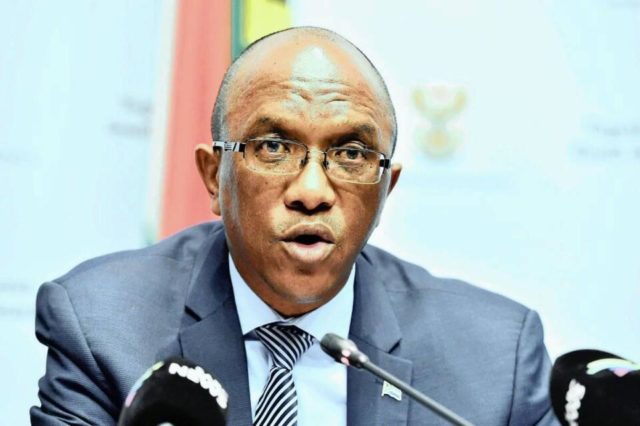The annual unauthorised expenditure decreased from R2.13 billion to R1.65 billion
THE NORTHERN Cape has been warned not to expect any improvements in its audit outcome for 2018/19.
During a recent briefing by Auditor-General Kimi Makwetu to Parliament’s standing committees on public accounts and appropriations, it was pointed out that the Northern Cape had made no major strides and the situation there “could still be slippery”.
The key message from the 2018/19 audit outcomes of government departments and state-owned entities (SOEs) was that preventive controls, strong consequence management and an effective monitoring culture were still lacking.
It was pointed out during the meeting that of the 432 entities that were audited, 100 had received unqualified audit opinions with no findings, or “clean audits”. The audit opinions for 182 were unqualified, with findings. Eighty-six received qualified opinions, four received adverse opinions and there were disclaimers of opinion at 11 entities. Financial statements for 49 entities had not been submitted by the cut-off date of September 2.
Annual fruitless and wasteful expenditure decreased from R2.57 billion to R1.42 billion, but total annual irregular expenditure increased from R50.97 billion to R61.35 billion.
Makwetu also raised concerns about the quality of financial statements submitted for auditing. Of the departments which received unqualified audits, 31% received them only because they corrected misstatements identified during the audit.
Information technology (IT) was an area that required “prominent attention”, with 88% of auditees having weak IT controls that increased the risk of fraudulent transactions; and 73% having weak IT security which made them vulnerable to cyberattacks.
Among the root causes of the lack of improvement in audit outcomes was a lack of urgency by managers and oversight bodies in responding to risks flagged by the AG. Other causes were prolonged instability and vacancies in key management positions, and inadequate consequences for dereliction of duty.
The hearing was told that AGSA’s mandate had been extended to allow it to take action against accounting officers who failed to act on material irregularities identified in audits. Certificates of debt could be issued against them if they ignored AGSA’s recommendations.
In a statement issued by the standing committee on public accounts (Scopa) and the standing committee on appropriations, concern was expressed about the performance of departments and state-owned entities (SOEs) in the 2018/19 audit outcomes.
“What has been of great concern is the financial state and management of SOEs. Out of the 14 SOEs audited by the AG, 11 of those obtained poor audit outcomes, mainly as a result of non-compliance with supply chain management processes,” the chairperson of Scopa, Mkhuleko Hlengwa, and acting chairperson of Scopa, Xolisile Qayiso, stated.
“It is also worrying to learn that in the 2018/19 financial year, guarantees amounting to R446 billion were issued to 11 SOEs, including SOEs that are not audited by the AG. The total government exposure relating to these guarantees amounted to R328 billion. Of the total cumulative guarantees issued ending March 31, 2019, R350 billion was issued to Eskom, with a
R286 billion exposure as at March 2019. These guarantees or bailouts for SOEs increase the budget deficit of the fiscus, government debt and borrowing costs, which result in downgrades from rating agencies.”
The committee further expressed concern at those departments and SOEs that have not submitted their financial statements to the AG.
“Among the culprits that have not submitted is South African Airways (SAA), which has not submitted financial statements for two financial years. As a result of this non-submission, no auditing work has been done for 2019 at SAA due to the outstanding information. This shows the disregard of SAA for the law and sets a wrong precedence of normalising the non-submission of financial statements. The committees are unhappy with the lack of consequences for this non-submission of financial statements by SAA, other departments and SOEs.”
The committees have also noted that the annual irregular expenditure increased from R50.97 billion to R61.35 billion. “Compliance with key legislation slightly regressed from 71.5% to 72.1%. Most common non-compliance areas are in the area of the quality of financial statements, management of procurement and contract management. Another common area of non-compliance is in irregular, fruitless and wasteful expenditure. The increase of irregular expenditure is testament to this. Effecting consequences has also been flagged by the AG as a common area of non-compliance.”
Some comfort was found with the fact that the annual fruitless and wasteful expenditure decreased from R2.57 billion to R1.42 billion. “The annual unauthorised expenditure decreased from R2.13 billion to R1.65 billion. It is important that this kind of expenditure continues to decrease until it is eliminated completely. Consequence management will be instrumental in ensuring that fruitless, wasteful and unauthorised expenditure becomes a thing of the past.”








